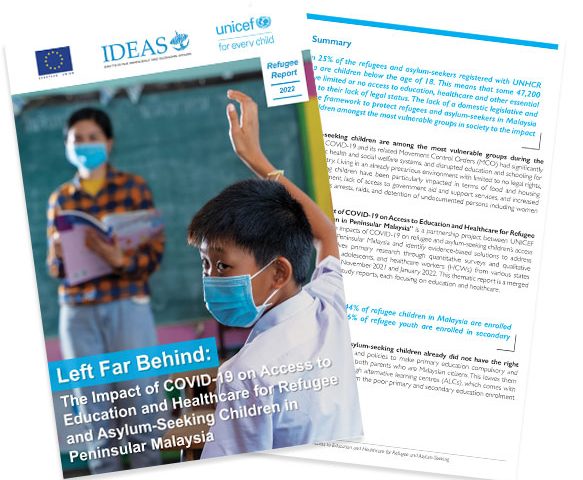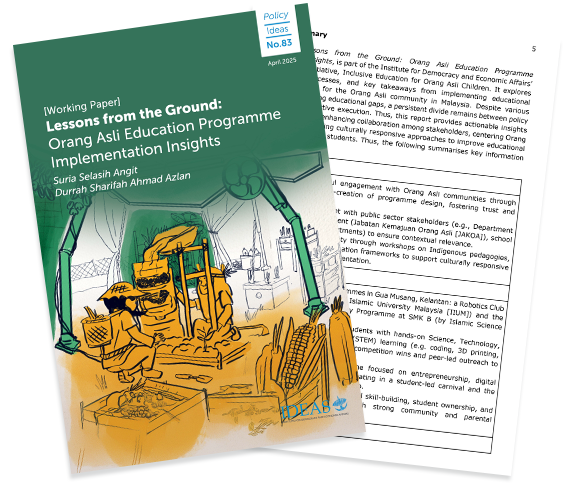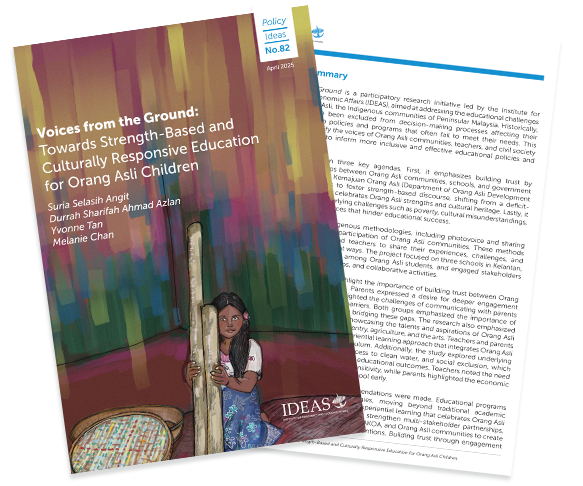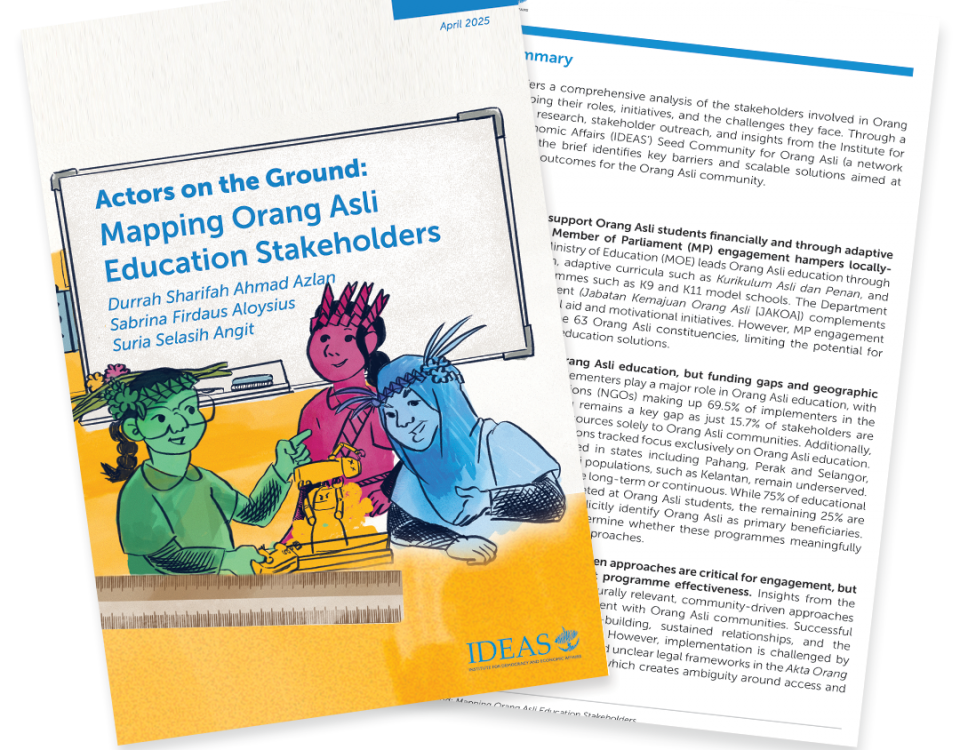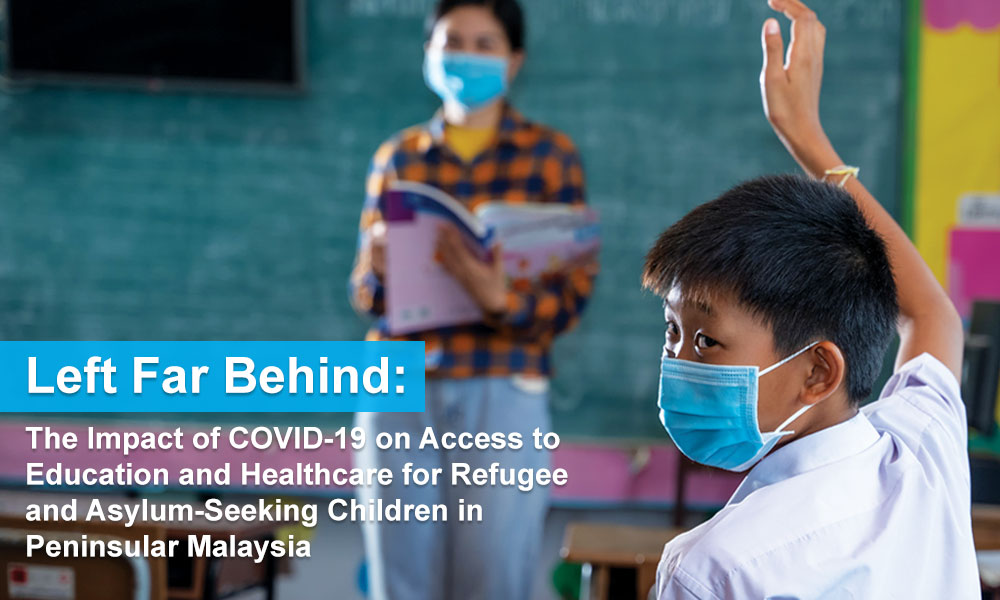
Left Far Behind:
The Impact of COVID-19 on Access to Education and Healthcare for Refugee and Asylum-Seeking Children in Peninsular Malaysia
Author: Diode Consultancy and Wan Ya Shin
“Left Far Behind: The Impact of COVID-19 on Access to Education and Healthcare for Refugee and Asylum-Seeking Children in Peninsular Malaysia” is a partnership project between UNICEF and IDEAS Malaysia to assess the impact of COVID-19 on refugee and asylum-seeking children’s access to education and healthcare in Malaysia and identify evidence-based solutions to address these impacts. This is a study conducted under Protecting children affected by migration in Southeast, South and Central Asia, a project implemented by UNICEF and IDEAS, and co-funded by the European Union and UNICEF.
More than 25% of the refugees and asylum-seekers registered with UNHCR in Malaysia are children below the age of 18. This means that some 47,200 children have limited or no access to education, healthcare and other essential services due to their lack of legal status (figures as of June 2022). The lack of a domestic legislative and administrative framework to protect refugees and asylum seekers in Malaysia puts these children amongst the most vulnerable groups in society to the impact of COVID-19.
As Malaysia charts its way out of the pandemic, the findings of this study have demonstrated the disproportionate impacts of the COVID-19 pandemic on the already precarious circumstances of these vulnerable children. These impacts, if not addressed urgently, are likely to continue bringing long-term harm to their lives. Drawn from refugees and asylum-seekers themselves, as well as the teachers and healthcare workers that support them, the recommendations in this study recognize the lessons learned during the pandemic to provide concrete suggestions to address the identified barriers and capitalise on new opportunities.
Download the report to find out more about the study.
Download the audiobook to listen to the summary of findings from the report in Rohingya language.
